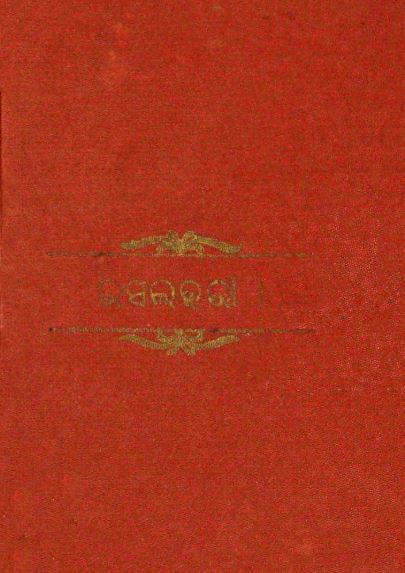Rasalahari, a remarkable collection of poetry by Raghunatha Bhanjadeba, first published in 1928, stands as a significant milestone in Odia literature. This literary work is not just a mere collection of verses; it is a profound exploration of the human experience, emotions, and the intricate relationship between the self and the divine. Through his adept use of language and poetic forms, Bhanjadeba has crafted a masterpiece that continues to resonate with readers even decades after its publication.
At the heart of Rasalahari lies the theme of love—specifically, divine love and its manifestations in human relationships. Bhanjadeba draws heavily from the rich tapestry of Odia folklore and mythology, incorporating elements from the lives of deities and heroes, which allows readers to connect deeply with the text. The poet’s verses frequently navigate the labyrinth of love, not just as an emotion, but as a transformative force that elevates the soul towards higher realms of consciousness.
Bhanjadeba’s poetry is characterized by its lyrical quality and a rhythmic cadence that brings the verses to life. His choice of words evokes vivid imagery, enabling readers to visualize the scenes he depicts, whether they be serene landscapes, moments of passionate love, or the yearning for the divine. The emotional depth present in each poem invites readers to reflect on their own experiences and relationships, creating a bridge between the poet and his audience.
Rasalahari is noted for its diverse poetic forms, ranging from traditional motifs to modern interpretations. Bhanjadeba showcases his technical prowess by employing various styles while maintaining the essence of Odia poetic tradition. His use of rhyme and meter not only enhances the aesthetics of the poetry but also reinforces the emotional weight of the themes explored.
A significant aspect of Bhanjadeba’s style is his ability to weave metaphors that evoke both thought and feeling. For instance, he may compare the beloved to a blossoming flower, embodying beauty and fleetingness, which speaks to the transient nature of love. This layer of symbolism adds depth to the reading experience, inviting multiple interpretations and encouraging readers to delve deeper into the philosophical undercurrents present in his work.
Rasalahari is not just a significant literary achievement; it also reflects the cultural and spiritual ethos of Odisha during the early 20th century. In a time when the socio-political landscape was changing rapidly, Bhanjadeba’s poetry served as a source of inspiration and solace for many. His works resonate with the ideals of spirituality, harmony, and the pursuit of beauty, which are key facets of Odia culture.
Moreover, the themes of devotion and longing found in Rasalahari resonate with the longstanding traditions of Bhakti, reinforcing the idea that love transcends the mundane and connects us to the divine. Bhanjadeba’s ability to infuse these timeless concepts into his poetry ensures that Rasalahari remains relevant to contemporary readers seeking a deeper understanding of love, spirituality, and the human condition.
Books Info
| Books name | Rasalahari / ରସଲହରୀ |
| Author | Raghunatha Bhanjadeba |
| No Of pages | 162 |
| Publisher | NA |
| Publication | 1928 |
| Printed At | Utkal Sahitya Press |
| Distributor | NA |

